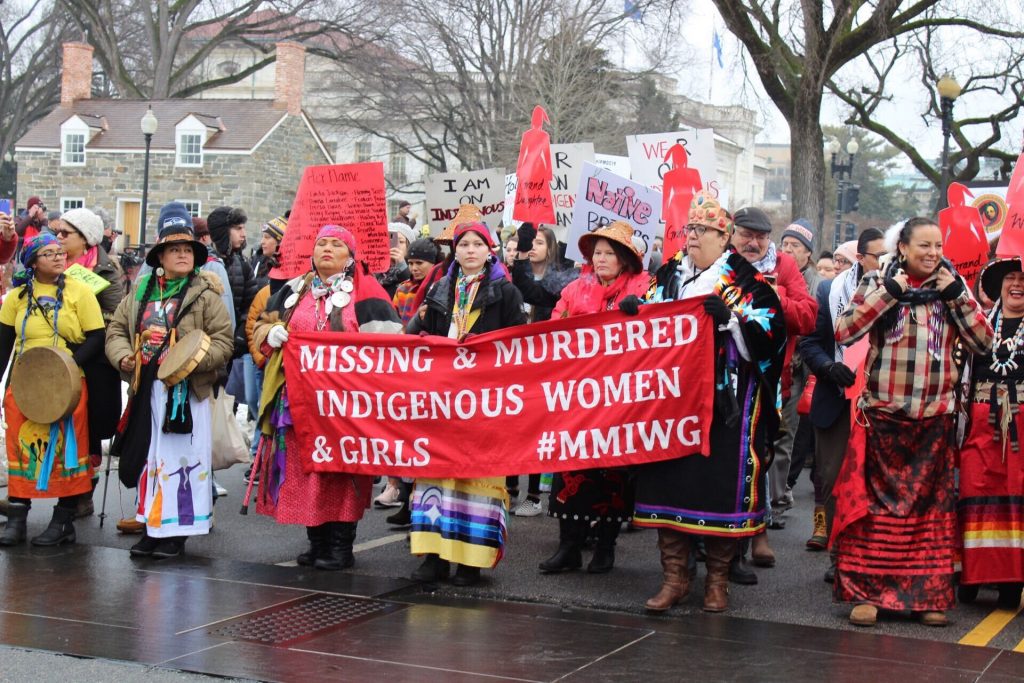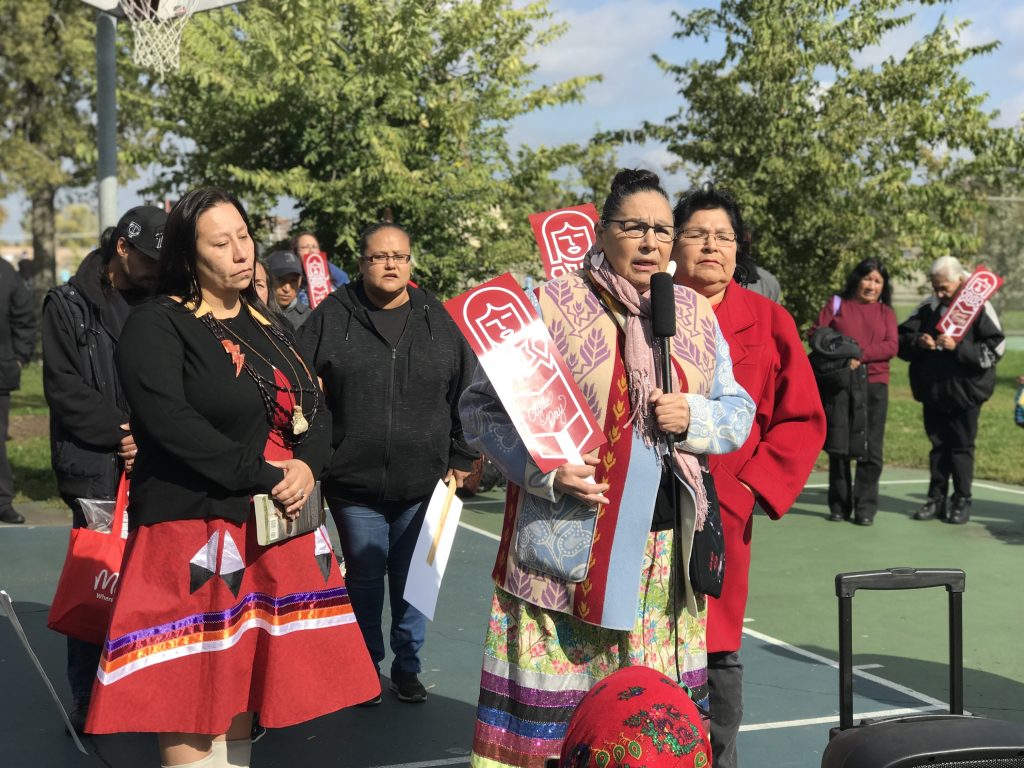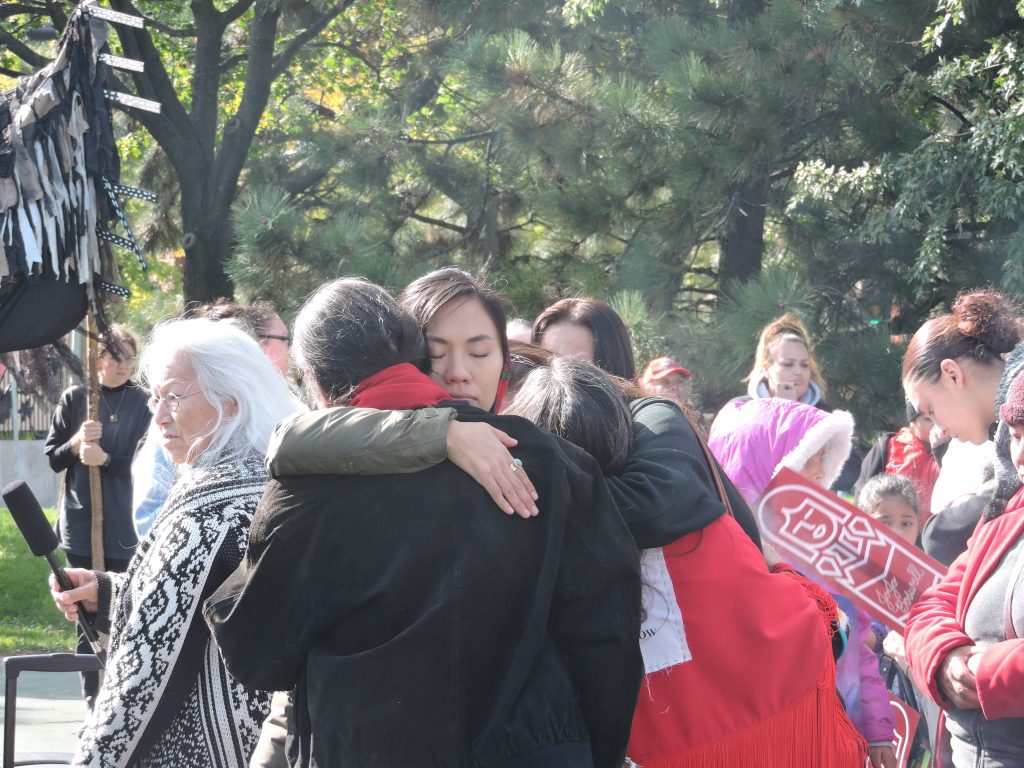On this day of love, we join Indigenous Peoples from Turtle Island to the Pacific to remember and honor so many beloved relatives lost to the epidemic of violence impacting our communities. In doing so we continue to uplift the strength of Linda Ann Joe and her family, who started the Women’s Memorial March February 14, 1991 in Vancouver, Canada, in remembrance of her daughter. It’s fitting that the march started on a colonial holiday of romance and “love” because it challenges the commercialization of this day to remember that our Indigenous traditions and ways of living have always honored community love, care, and compassion as an important part of our collective responsibility.

The power of the prevalence of these teachings has been evident in the growing movement to honor and remember the missing and murdered so that for many Indigenous Peoples, February 14th has since come to be known as the National Day of Action, marked by marches and vigils across numerous cities. NDN Collective joined one such event in Minneapolis, covering the march Live from our social media platforms.
We know that it’s our relatives on the frontlines that have been, and will continue to be, medicine in a world grappling with heteronormative and patriarchal systems rooted in a culture of violence.
The power of awareness and visibility cannot be underestimated. It’s movements like these, birthed from the tireless advocacy and work of grassroots groups, that have led to many successes in the fight to address the epidemic of missing and murdered Indigenous relatives. One such example is the passage of the 2017 senate resolution which recognizes May 5th as the National Day of Awareness for Missing and Murdered Native Women and Girls. As we approach the 6 year anniversary, NDN Collective will be developing and sharing content in collaboration with community partners to reflect on the advancements, ongoing challenges, and promising solutions to address the epidemic of violence that continues to affect Indigenous Peoples.

Some such offerings include hosting a live panel of MMIR advocates from Turtle Island to the Pacific to talk about their work; working with community partners to publish a series of blogs tackling some of the most complex issues about this epidemic; as well as sharing content across our platforms that recognize and promote the important community-led work that is the heart of this movement.
Through these offerings we will address priority topics identified by movement builders on the ground such as the commodification of the movement by companies with no accountability to those doing the actual work on the frontlines. Other topics will include the benefits and challenges created by greater visibility of the epidemic as well as the on-going issues of invisibilizing our trans, two spirit and non-binary relatives, or the complete erasure of our relatives living with disabilities.
It’s movements like these, birthed from the tireless advocacy and work of grassroots groups, that have led to many successes in the fight to address the epidemic of missing and murdered Indigenous relatives.
We will unpack what needs to be learned from emerging data that shows Indigenous men are being murdered or disappeared at a higher rate than our women and the particular type of victim blaming that is leading to their erasure. We will also discuss emerging threats and new forms of exploitation made possible by the rise of technology, Artificial Intelligence (AI), and how disparities in digital access and representation can exacerbate the challenges we face. Most importantly, we will highlight the incredible groundbreaking work of advocates, families, and allies, as well as the solutions rooted in the restoration and/or r(e)volution of cultural values, lifeways, and worldviews that hold the key to restoring place-based practices for community safety and wellbeing.

We know that through sharing solutions we can better honor the incredible Indigenous-led work happening across our lands, and move beyond the horror of the statistics and data, the collection of which continues to be a burden forced onto our communities to prove the violence we faced is real.
We know that it’s our relatives on the frontlines that have been, and will continue to be, medicine in a world grappling with heteronormative and patriarchal systems rooted in a culture of violence. It is our intent with the launch of these offerings to reflect the love with which so many fight to achieve justice, peace, safety, and wellbeing for all Peoples and Mother Earth.
